I created a custom DataGridViewComboBoxColumn "TPDataGridViewComboBoxColumn" which inherts from "DataGridViewComboBoxColumn",
public class TPDataGridViewComboBoxColumn : DataGridViewComboBoxColumn {
public TPDataGridViewComboBoxColumn() {
CellTemplate = new TPDataGridViewComboBoxCell();
}
}
the DataGridViewComboBoxCell "TPDataGridViewComboBoxCell"
public class TPDataGridViewComboBoxCell : DataGridViewComboBoxCell {
public override Type EditType => typeof(TPDataGridViewComboBoxEditingControl);
}
and the DataGridViewComboBoxEditingControl "TPDataGridViewComboBoxEditingControl"
public class TPDataGridViewComboBoxEditingControl : DataGridViewComboBoxEditingControl {
#region Events
public event EventHandler<OldNewCancelEventArgs> SelectedIndexChanging;
public event EventHandler<OldNewCancelEventArgs> SelectedValueChanging;
#endregion Events
#region Internal Properties
private int _previousSelectedIndex = -1;
private bool _isRevertingSelectedIndex = false;
private object _previousSelectedValue = null;
private bool _isRevertingSelectedValue = false;
#endregion Internal Properties
#region Konstruktor
public TPDataGridViewComboBoxEditingControl() {
}
#endregion Konstruktor
#region Functions
protected virtual void OnSelectedValueChanging(OldNewCancelEventArgs e) {
SelectedValueChanging?.Invoke(this, e);
}
protected override void OnSelectedValueChanged(EventArgs e) {
if (_isRevertingSelectedValue) {
_isRevertingSelectedValue = false;
// Ignore the event altogether.
return;
}
var cea = new OldNewCancelEventArgs(_previousSelectedValue, SelectedValue);
OnSelectedValueChanging(cea);
if (cea.Cancel) {
// Revert the index to its previous value, so it appears not to have changed.
_isRevertingSelectedValue = true;
SelectedValue = _previousSelectedValue;
// Do not process the event any further.
return;
}
// Commit the index change.
_previousSelectedValue = SelectedValue;
base.OnSelectedValueChanged(e);
}
protected virtual void OnSelectedIndexChanging(OldNewCancelEventArgs e) {
SelectedIndexChanging?.Invoke(this, e);
}
protected override void OnSelectedIndexChanged(EventArgs e) {
if (_isRevertingSelectedIndex) {
_isRevertingSelectedIndex = false;
// Ignore the event altogether.
return;
}
var cea = new OldNewCancelEventArgs(_previousSelectedIndex, SelectedIndex);
OnSelectedIndexChanging(cea);
if (cea.Cancel) {
// Revert the index to its previous value, so it appears not to have changed.
_isRevertingSelectedIndex = true;
SelectedIndex = _previousSelectedIndex;
// Do not process the event any further.
return;
}
// Commit the index change.
_previousSelectedIndex = SelectedIndex;
base.OnSelectedIndexChanged(e);
}
#endregion Functions
}
I added the datasource for the combobox with some simple strings, and when i want to open the DropDown the SelectedIndex is first set to -1. The CallStack show that scenario:

I want to Handle my Custom Event "SelectedValueChanging" to Interrupt the change from one value to another. In the EventHandler i call a MessageBox.Show(). The frequent call of SelectedIndexChanged for a multiple call of MessageBox.Show().
How could i prevent this behavoir?
Thanks in advance!
Edit:
I found out, that in InitializeEditingControl the DataSource is set to NULL and right after that, to my DataSource.